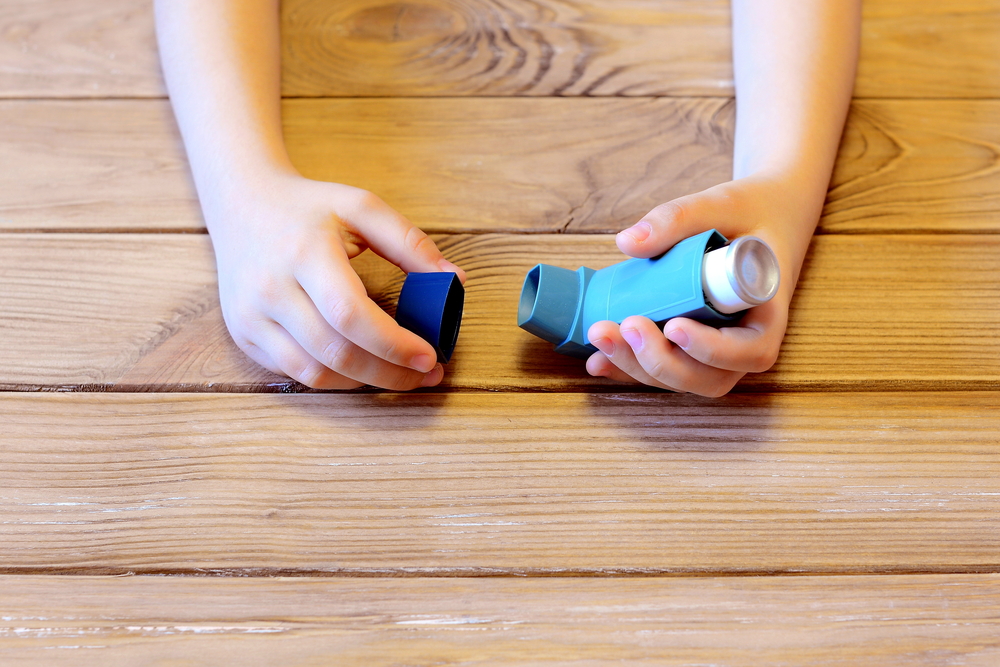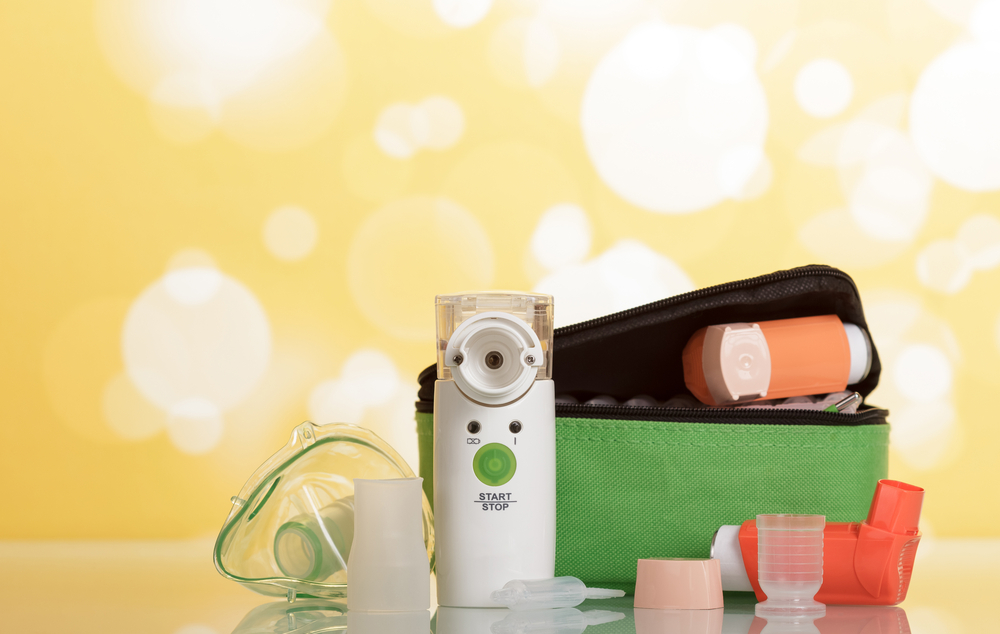Asthma is a common chronic condition affecting children across North America. While asthma attacks can happen at any moment, many students’ most common site of attack is while they are at school. After all, they spend 6 hours a day there, 5 days per week. Though some schools permit students to carry their own inhalers for immediate use in case of emergencies, many do not. In fact, many students’ inhalers are locked away in an office with the other students’ medications, making access to it difficult in the event of an emergency. The passing of “Ryan’s Law” in Ontario, Canada, marks a significant milestone towards providing a safer environment for students with asthma in schools. The law is named after 12-year-old Ryan Gibbons, who tragically passed away due to a severe asthma attack during recess. This law aims to ensure that asthmatic children are allowed to carry their inhalers with them at all times. The passing of Ryan’s Law has prompted discussion across much of North America as to whether or not laws surrounding inhalers at school need to change.
Asthma Inhalers in School: Ryan’s Tragic Story

When you send your child to school, you trust that the adults in that building will keep your child safe. This is especially if you have a child who has a medical condition, such as allergies or asthma. This is what 12-year-old Ryan Gibbons’ mom, Sandra, thought of sending her son to school each day. Unfortunately, this was not the case. Ryan Gibbons tragically lost his life on October 9, 2012, during a severe asthma attack that occurred while he was at school in Straffordville, Ontario. Sandra explained that his friends carried Ryan into the school and tried to get his inhaler, which was stored in the principal’s office, but they couldn’t get into the locked office in time. Ryan blacked out and passed away shortly after.
“So as he was going to the office to get his inhaler, he kind of was having a hard time and had to be carried into the office, and by the time he got there he had blacked out,” explained the still grieving mother. “To this day I really don’t know how exactly the whole day unfolded for him.”
Push for Policy Change

Ryan’s death was entirely preventable if only he had been permitted to carry his inhaler with him instead of having it locked away in an office. Sandra explained that she was unaware of the law that stated that inhalers must be kept in the principal’s office and be administered by an adult. The problem, as she found out, was that inhalers were grouped along with all the other possible medications that a child might need to have at the school. While she understands the need for this law for other kinds of medications, for children with asthma, having the inhaler locked away makes no sense. Not having their medication with them only adds to their stress and worsens asthma attacks.
“I received many a phone call stating Ryan had taken an inhaler to school and they found it in his bag and would like me to come pick it up because he wasn’t even allowed to bring it home with him,” she recalled. “There’s supposed to be one in the office and that’s the only one he can have. I didn’t understand why.”
Following Ryan’s heartbreaking death, his mother, Sandra Gibbons, embarked on a mission to advocate for a policy change that would allow students with asthma to carry their puffers with them at school. This would allow for immediate use during emergencies, which would have saved her son’s life.
Implementation of Ryan’s Law

To honor her son’s memory and prevent similar tragedies in the future, Sandra Gibbons initiated a petition urging the government to mandate standardized asthma management plans for school boards. Subsequently, a private member’s bill called “Ryan’s Law,” introduced by Progressive Conservative Jeff Yurek, gained traction. After over a decade of advocating for change, Sandra finally got Ryan’s Law over the line. This bill allows students with asthma to have a puffer in their possession at all times, either in their pocket or backpack, in addition to a spare inhaler kept on the school premises.
Read More: 6 Ways to Ways To Deal With Household Mold Naturally
The Need for Easy Access to Inhalers

For many children with asthma, flare-ups can occur unexpectedly while at school. In such situations, having quick access to a reliever inhaler can make a crucial difference in managing symptoms and preventing severe outcomes. However, students often face barriers when they forget their inhalers at home or cannot afford to keep a spare inhaler at school. This can lead to delays in receiving necessary medication and may result in emergency calls or hospitalizations.
For example, in the United States, the laws surrounding the use and carry of inhalers at school vary depending on the state. In some cases, the only ones allowed to administer medications, including inhalers, are registered nurses – only in many cases there is one registered nurse for a group of schools. This means that the nurse, the only person who is legally allowed to administer to a child their inhaler, might not even be on the premises when the asthma attack happens.
Laws That Need Changing

In one instance, with a school nurse in Baltimore, Elaine, she had to choose between saving a student’s life or losing her job. She chose the former and subsequently lost her job. What happened? The student was having an asthma attack and began blacking out. Unable to access that student’s medication, she chose to use the inhaler of another student, successfully bringing that student back to consciousness. Three weeks later, she got fired for using another student’s inhaler, despite having saved a student’s life. She shared her story in order to advocate for change:
In October 2018, two students reported another was having difficulty breathing. When I arrived, I found a student in severe distress, gasping for breath. I was told that 9-1-1 had been called, and an ambulance was coming. Someone asked the student, who was known to have asthma, “Where is your inhaler?” It was locked in the gym office, and the coach was unavailable.
The student’s condition rapidly deteriorated. Her respirations became increasingly labored. She lost consciousness. Gasping at 60 respirations a minute, her pulse increased to 124 beats a minute. I then learned that an ambulance hadn’t been called. Sensing an impending disaster, I ordered, “Call one, now!!”
The student’s condition deteriorated. Not knowing when help would arrive, I asked someone to find another student’s inhaler, knowing it would contain the needed medication. When one was found, I administered two puffs, waited, then gave two more. Within minutes, the student’s respirations became less labored.
When the student’s mother arrived, she was grateful that I had given her daughter another student’s inhaler. When the ambulance arrived shortly thereafter, the student had mostly recovered. While I was relieved to have a good outcome, I lost my job weeks later in direct response to my actions that violated official policy. Only then did I realize that a stock inhaler law could have prevented this outcome. I am speaking out now to prevent it from happening to someone else.
Successful Solutions: Stocking Inhalers in Schools

As Elaine stated, one effective solution to address the lack of access to inhalers for students is by implementing programs that allow schools to stock albuterol medication on-site. In states like Arizona, pilot programs have shown promising results, with a significant decrease in emergency calls and ambulance transports after the introduction of stock albuterol initiatives. By having inhalers readily available, trained school officials can promptly administer medication to students experiencing asthma episodes, ensuring timely and efficient care. These medications need to be easily accessible – not locked away somewhere where the student’s teacher or other staff member cannot access them. As we have learned with Ryan’s case, the situation is quite literally life and death.
Overcoming Legal Barriers

In some states, legal restrictions may hinder non-nursing staff from administering asthma medications to students. To bridge this gap, advocacy efforts led by medical professionals and organizations, such as the American Lung Association, have been instrumental in advocating for legislative changes. In Arizona, a bill was passed in 2017 that allowed doctors to prescribe medication directly to schools, empowering trained school personnel to administer inhalers during asthma emergencies. From here, the question becomes: Who should be trained to administer the inhaler? Ideally, every teacher should have this training. This is especially if they have a student in their class who has asthma. Additionally, any staff member who acts as a coach or participates in other extracurricular activities should know where, how, and when to access and administer life-saving inhalers to students. This includes any staff that are overseeing recess time, when children are most likely to be active and running around.
Ensuring Student Safety and Well-being

Empowering students to carry their own inhalers in school is not just a matter of convenience but a critical aspect of promoting student health and safety. By allowing students to have their inhalers readily available, schools can proactively address asthma emergencies, reduce risks of severe health complications, and support students in managing their condition effectively. Also making sure that all schools are stocked with this life-saving medication, have it more easily accessible, and ensuring that staff are trained in how and when to use it, will help keep students with asthma safer not just while at school, but also while on field trips, sports tournaments, and other school-related outings. As we strive for inclusive and accessible healthcare practices in educational settings, advocating for universal access to inhalers for students is a step towards creating a healthier and safer school environment for all. If your children’s school has restrictive laws regarding their inhalers, consider this your push to speak up. Your child’s life, and that of other students, might depend on it.
Disclaimer: This information is not intended to be a substitute for professional medical advice, diagnosis or treatment and is for information only. Always seek the advice of your physician or another qualified health provider with any questions about your medical condition and/or current medication. Do not disregard professional medical advice or delay seeking advice or treatment because of something you have read here.
Read More: Family is sharing their story of tragic loss to raise awareness about allergies

